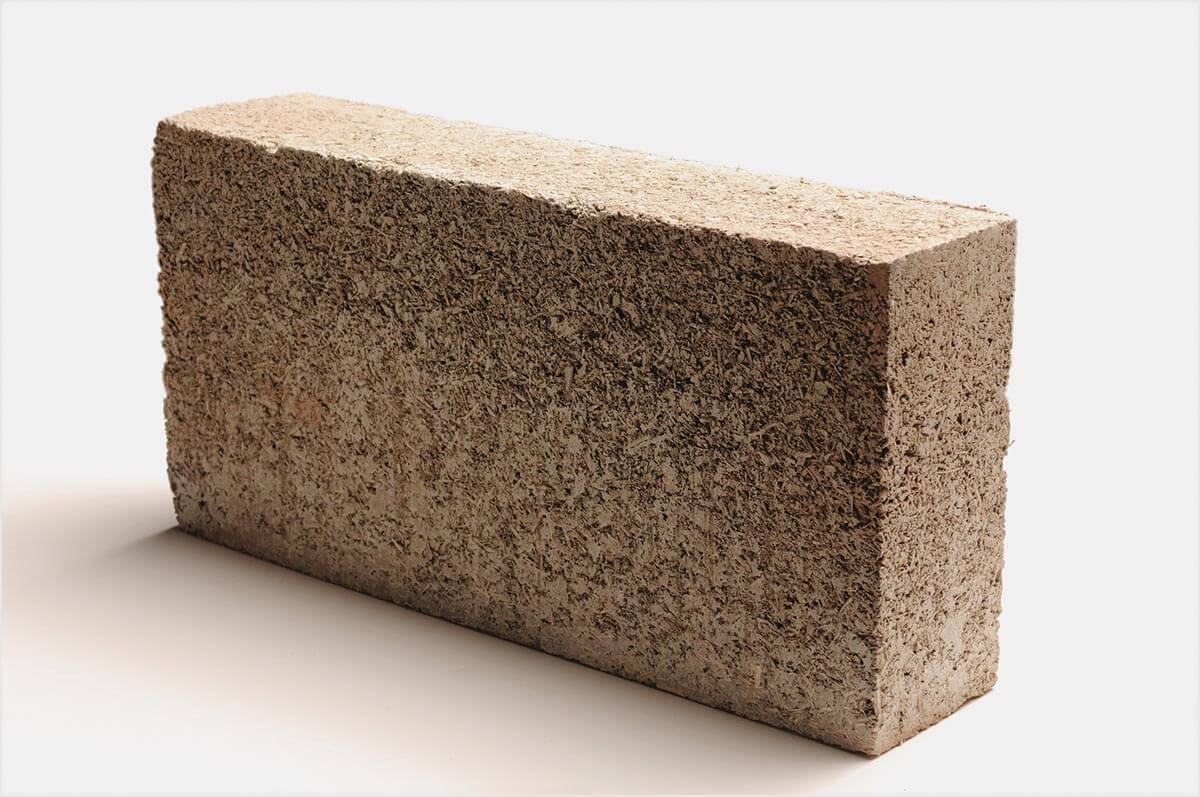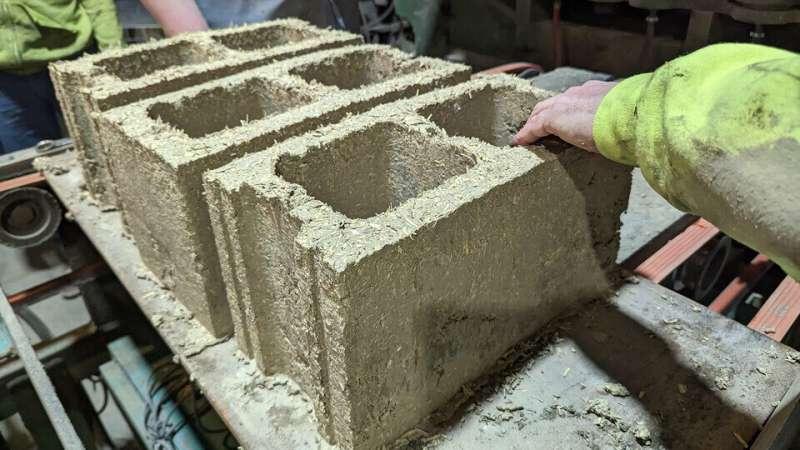The University of Nebraska has developed a hemp-based blend for concrete masonry blocks to help meet the world's construction needs and is an environmentally friendly material. "This is something unique in the world, a hemp-based composite material with load-bearing capacity." said Marc Maguire, Associate Professor at Durham University.
Maguire said the new mix could cause a fundamental change in the construction industry. Because it is lighter than traditional Portland cement, he said. However, it can be used for masonry blocks that meet American Society for Testing and Materials (ASTM) C90 standards for strength, water absorption and weight bearing. Maguire also said that when tested, the material eliminated the equivalent of 102 pounds of carbon dioxide per square foot, about four times more than standard concrete mixes.
Also See: Translucent Receives £2.7 Million Investment
Hemp-Based Wall Blocks

The fibrous inner part of the stalk of the hemp plant is mixed with a binding agent to create a new composite material. This ensures that the material is sustainably supplied. It can also be used on construction sites to speed up work.
Over spring break, Maguire's team used the Watkins Concrete Block plant in Omaha as part of their research supported by Global Fiber Processing and the Nebraska Department of Economic Development. They produced 500 CMUs (concrete masonry blocks) to test the production of a new composite material that could be used to replace blocks commonly known as cinder blocks.
The team's goal is to build full-scale walls in the Durham School's construction lab at the Peter Kiewit Institute on the Scott Campus. In order to do this, they are conducting performance tests using hemp blocks. These tests cover areas as diverse as the weathering of the concrete, the overall strength of the block and its insulation capabilities. Maguire said that another manufacturer approached them with a request to make a different type of wall block. A trial run will be conducted to meet the team's request.
Hemp-based composite material
The 2018 federal farm bill legalized the production of hemp. It removed the plant and its seeds from the Drug Enforcement Administration's controlled substances program. A consistent basis for hemp production and consumer demand has not yet been established. This could hinder the steady growth of the industry. Maguire noted that a hemp-based cement mix could benefit farmers both sustainably and economically.
Farmers can be economically empowered by the income from hemp production. It could also provide an alternative product for the construction industry, providing more opportunities for farmers as demand for this blend increases. The ability to produce more hemp and reduce costs could help make the new cement mix even more competitive with composites.
Maguire says their research is ongoing and their products are evolving. For now, he admits that they do not have the infrastructure for large-scale production. He also states that they will continue to test and develop their products. However, as demand increases, they also plan to increase the scalability of production and spread their products to a wider market.





No comments yet for this news, be the first one!...